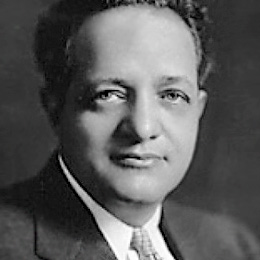
Methods and Tools.
© Warchi / iStock by Getty Images
In K&A Psychodrama® we experience brands and their meaning in the world of the target group. Projective techniques such as role plays, imaginations, symbol work and many more originate from psychodramatic therapy work. They are therefore used at K&A by professional psychodrama leaders working exclusively for us.
Our approach of 'asking without asking' avoids the basic problem of conventional group discussions and individual interviews: We humans often don't know what really moves us, can't articulate it or sometimes simply don't want to tell.
Because in K&A Psychodrama® we do not discuss with 'interviewees' but work with 'participants', researchers and marketers do not get tangled up in pretended rationalisations, but directly address emotions and true drivers and barriers.
We have been doing this since 1989, in constant development, in already more than 1,300 psychodrama events and for more than 400 brands.
Those who already "mark" themselves positively as a brand in childhood and awaken needs in adolescents (age 5-16) will find it easier to manage the brand in the future.
Children and adolescents need special approaches for marketing research. In addition to friendship pairs, parent-child surveys and in-depth explorations, we use the K&A Children's Psychodrama: it creates playful emotional access to the target group, overcomes ego weaknesses in very young consumers and finds ways in which brands can trigger amazement in children and young people.
are more than classic group discussions and highly efficient. The method uses elements of K&A Psychodrama® to exploit the potential of group dynamic processes in a more effective and lively way.
Projective techniques and imaginations bring a much wider range of results through additionally revealed facets of the target group reality and deepening insights into causal connections.
In an intensive three-hour engagement with the target group, we elicit hypotheses on motives, inhibitions and emotional implications.
Monodrama is a psychodrama in individual settings, for realistic insights into personal opinion concepts and emotional decision-making worlds of the interviewee - to understand his or her very own view of the systemic context of decision-making.
The human being as a social being unconsciously takes on certain roles in social contexts (groups), in the individual setting this influencing factor is minimised. Gestures, facial expressions, role-playing behaviour and game elements gain importance alongside conversation and reflection. Experience target groups on a psychological symbolic level.
A trusting encounter between interviewers and interviewees and the use of psychodramatic methods makes typical interactions between brands and consumers / medicines and patients visible in relevant contexts. We obtain psychological insights through several approaches: experiencing, experimenting and targeted exploration.
Online group discussions are a synthesis of psychologically scrutinizing qualitative research and adapted online methods. They are good for efficiently conducting qualitative and content-limited questions:
Camsharing-adapted exercises such as mapping, personification, and analogies for insight into markets, consumer knowledge, and brand status.
Advertising tests are purposefully prepared for online discussions, including short evaluations via online questionnaires with live reporting.
The K&A Monodrama® combined with efficient online communication. Even in times of social distancing, we clarify what really drives target customer behaviour and reinforce brands with pinpoint accuracy.
Interactive, projective, in context - without rationalisation¬, reactance or over-psychologisation.
The K&A Creative Workshop transforms consumer insights into creative marketing solutions. In everyday life, we often leave creativity to chance. Scientific innovation research shows that we do not have to rely on sudden flashes of inspiration. Conscious control of the right framework conditions and specially developed working techniques stimulate creativity and help flashes of inspiration. To make this work, the K&A Kreativwerkstatt puts central rules of creativity research into practice.
Creativity needs clear rules and unambiguously formulated objectives, but it must also have room for the creative incubation effect: our neuronal networks must 'rewire' themselves for creative ideas. They won't do that if we put them under constant pressure through strenuous mental work. That's why our tool provides room for incubation for the test persons.
The K&A Creative Workshop is an intensive workshop format of about 6 hours with the target group including a follow-up module. The output is solutions that meet the needs of the target group and trigger a real response. Typical tasks are the development of key visuals, drafting storylines for brand communication or routes for product development.
The K&A Brand Workshop is a tool that combines brand consulting with elements of the psychodrama approach. Its use is particularly suitable for the concretisation of brand positions on the basis of insights or different ideas about the future of a brand in the company.
The process is creatively designed, but follows a clearly brand-technical orientation throughout. In addition to a consequent sharpening of positioning (war cry, rule of three, K&A Brand Triangle®, brand-human matrix), brand attitude or corporate values, Brand stretch approaches as well as strategies around touchpoint management are also taken into account.
The K&A Brand Workshop is a 5 to 8 hour workshop format involving responsible managers from the client and from creative agencies. The output is action-oriented strategies, which can include initial creative implementation ideas if required.
K&A moderates, accompanies and sets impulses in internal company marketing processes without losing sight of the psychological effect on potential target customers.
We bring together stakeholders from the client side and lead users from target groups for interactive, dynamic and creative processes in decision-making. Based on selected elements of the K&A Psychodramas® and moderated by psychodrama leaders working exclusively for K&A, experiences are made together, new ways of thinking are tested and customer wishes are identified. Lead users inspire and provide valuable impulses for the development of creative product concepts and innovative marketing measures.
The CaféCreativ® tool is very efficient in generating ideas. Intensive preparation by experts, small group settings during on-site implementation and timely follow-up by K&A ensure effective, direct transfer into practice.
The relevance of products and services is defined by everyday contexts. Even if we have an emotionally positively charged image of a brand, knowledge of this brand does not bring any benefit if it is not then also thought of relatively quickly in certain everyday situations.
In our half-day context workshops, we open up a view into the everyday life of consumers, record everyday occasions and usage situations and use psychodramatic methods to open up access to existing and potentially possible context situations that can be linked to a brand.
The context workshops serve both to deepen positioning strategies and to generate new hypotheses - for example for a subsequent CEP-analysis.
We experience brands via touchpoints, perceive them and evaluate them situationally in comparison to other offers. Using multivariate analysis methods, we capture the current image of a brand through the eyes of the examined target groups and find strategic solutions for future brand design based on targeted research questions.
Essential areas of application of a K&A BrandExperience are
- the current perception and evaluation of contact points between consumers and brands
- the brand status (K&A BrandKey®) in the competitive environment and benchmark comparison
- Need-GAP and Unmet Needs from a Target Group Perspective
- Contexts of use, occasions and benefits and the capture of brand signals, brand messages and brand experience
With the CEP analysis, we localise the current relevance of contexts and the importance of individual products, services or brands. Through the cross-market understanding of everyday occasions and usage situations, we develop action-relevant context strategies for brands and companies.
The eMOT® advertising impact model experimentally determines implicit and explicit consequences of a stimulus through packaging, marketing communication, above-the-line and below-the-line advertising measures. The analysis of the effectiveness of purchase incentives, storytelling, brand reinforcement and context relevance identifies where market effective optimisation can start.
The interpretation of communication measures by the viewer is decisive for his later market behaviour. The specially developed eMOT® approach follows the idea of psychological attention focusing according to Kerlinger (1978) in advertising media analysis (emotional Marketing Mix Optimisation Test).
The method uses the current product or brand perception as a perception benchmark. The end result is clear statements on the success prognosis of a communication medium, on emotional resonance and salience, as well as on image transfer based on benchmarks.
The eMOT® approach can be used flexibly for different marketing mix questions and formats (commercial, virals, packaging, shelf, animatics, claims, verbal concepts …) and can be combined with additional tools (N. N., Usage & Attitude, BrandExperience, Eye-Tracking).
With the CEP analysis, we localise the current relevance of contexts and the importance of individual products, services or brands. Through the cross-market understanding of everyday occasions and usage situations, we develop action-relevant context strategies for brands and companies.
Category Entry Point: Relevance of contexts and of brands in contexts.
Touchpoints are the 'keyholes' of brands for consumers, contexts are its windows in everyday situations to brand relevance. In order to strategically and constructively reinforce the relevance of brands in everyday contexts, valid research results on the context relevance in the everyday life of the target customers are provided.
Those who better understand the perception of brands in contexts today can shape future behaviour more efficiently. Large case numbers of a focused study design as well as industry-specific individualised context research make CEP analyses a future-proof tool for quantitative market research that goes far beyond descriptive brand and awareness tracking.



